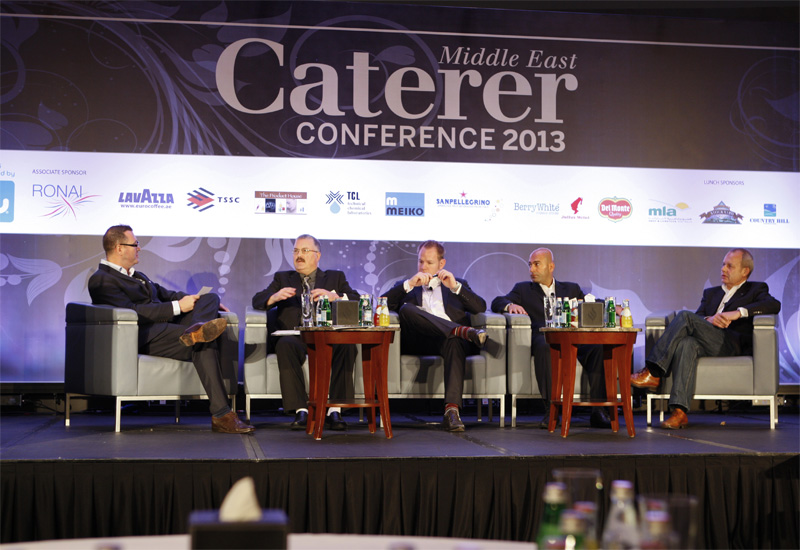Food costs are an important issue, and Caterer Middle East’s conference will discuss how suppliers and restaurants can work together to improve business all around.
This potentially controversial session will focus on whether the future is in direct sourcing of produce and streamlining ordering procedures, whether the chef or procurement team should be in charge of making orders, and how the F&B industry can work with the government to set clear and comprehensive guidelines so that outlets can avoid potential wastage and loss of revenue due to current ambiguous legislations.
Two workshop choices will also be given to delegates. One will focus on pre-launch phase and how to differentiate your offering from the rest.

| Advertisement |
Prior to launching a restaurant, a lot needs to be decided, from selecting suppliers to hiring and training staff, but one crucial factor is design — how does the design of a restaurant affect the overall atmosphere and in turn make for a successful business venture? The second workshop will focus on how restaurants need to up their game in order to achieve international recognition and be counted among the best venues on a global level.
While the concepts of home-grown versus international have often been bandied about, there’s a lot more under this topic that has to be discussed.
It is commonly believed that the Middle East F&B industry will only really achieve excellence on a global level through the opening of more independent venues, but we will discuss whether people are underestimating the power and international recognition that global brands can bring to the Middle East’s table? We will also table the question of whether international brands receive better opportunities and therefore achieve immediate success.
A mass catering case study will then be presented by Abu Dhabi-based Royal Catering general manager commercial Samer Simreen, who has experience with many large-scale events, including catering for the Abu Dhabi Formula 1 Grand Prix [see page 50].
And then the panellists will look at the importance of quality service standards and staff training, and how this affects your bottom line. The region is full of quality chefs and restaurants, but lacks the ample number of well trained staff that the rest of the world has.
This is being reflected in the poor service standards currently on offer and steadily dropping.
Developing and nurturing the skills of young hospitality professionals should be a matter of priority. We will also touch the controversial issue of poaching and give tips on how to secure your labour force and foster loyalty to avoid your staff being poached by a competitor.
And it’s also all about the future of F&B in the Middle East. With the Middle East’s popularity as a tourist destination on the rise and important global events coming our way, it’s an exciting time for F&B in the region. We’re seeing more standalone restaurants, groundbreaking technology being used, and a plethora of new dining concepts on the cards.
What can we expect to see in the future — and how can the industry capitalise on this latest wave of excitement for food in the region and boost their revenue? We discuss everything from technology to franchising models, from renovation lifecycles and investor attractiveness.
But this is only the tip of the iceberg — for more insights and opinions on how to be successful in your F&B business, make sure you attend the Food & Business Conference on March 18 at The Ritz-Carlton DIFC.









 Search our database of more than 2,700 industry companies
Search our database of more than 2,700 industry companies









